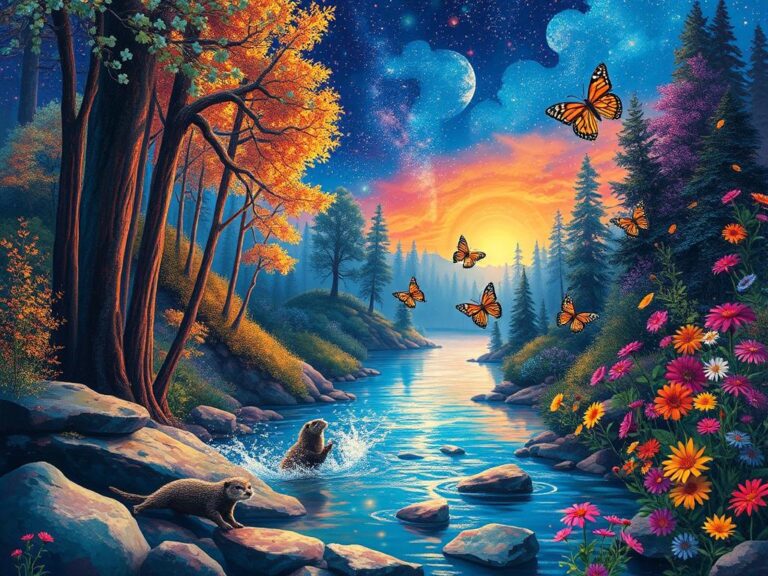Hard Riddles Riddles: A Deep Dive into Tough Puzzles
Hard Riddles Riddles: A Deep Dive into Tough Puzzles
Hard riddles riddles are more than just mere queries designed to stump the mind; they are a fascinating approach to cognitive engagement and mental challenge. Riddles stimulate critical thinking, enhance problem-solving skills, and provide the perfect blend of entertainment and mental workout. In this deep dive, we will explore the labyrinth of hard riddles that truly stretch your mind. Each riddle presents unique levels of complexity, requiring creativity and lateral thinking. You’ll discover a selection of challenging riddles that promise hours of fun along with strategies for crafting your own. Not only will we delve into the answers but also unpack the underlying skills these riddles help develop. Join us on this journey of discovery as we unravel the secrets behind tough puzzles, turning the seemingly simple into the profoundly complex.
The Allure of Hard Riddles
Why are hard riddles so compelling? The intrigue lies in their ability to engage your brain in unexpected ways. They often require creative thinking, challenging conventional logic and pushing the boundaries of what we consider “simple questions.”
Riddles can also serve as a social activity, creating a theater of discussion where friends gather to solve problems together. Some benefits of hard riddles include:
- Cognitive Skills Enhancement: Challenging riddles sharpen reasoning and analytical skills.
- Boosting Creativity: They encourage lateral thinking, inspiring new ways to approach problems.
- Increased Social Interaction: Riddles can be shared amongst friends, creating camaraderie and teamwork.
As Albert Einstein said, “Imagination is more important than knowledge.” Hard riddles test this imagination by fusing fun with mental exertion.
Challenging Riddles to Test Your Wits
Let’s dive into some hard riddles to really stretch your mind. Here are a selection of 10 intriguing puzzles:
- The Forgotten Bridge: I speak without a mouth and hear without ears. I have no body, but I come alive with the wind. What am I?
*Answer: An Echo* - The Unseen Illusion: I can be cracked, made, told, and played. What am I?
*Answer: A Joke* - The Traveling Companion: I fly without wings, I cry without eyes. Whenever I go, darkness flies. What am I?
*Answer: A Cloud* - The Mysterious Growth: The more of this there is, the less you see. What is it?
*Answer: Darkness* - The Endless Cycle: What can travel around the world while staying in a corner?
*Answer: A Stamp* - The Silent Hunter: I have keys but open no locks. I have space but no room. You can enter but not go outside. What am I?
*Answer: A Computer Keyboard* - The Qualifying Contrast: What has a heart that doesn’t beat?
*Answer: An Artichoke* - The Shadowy Stranger: I can be long, I can be short; I can be grown, I can be bought; I can be painted, I can be left bare; I can be round or square. What am I?
*Answer: Hair* - The Hidden Threat: What has one head, one foot, and four legs?
*Answer: A Bed* - The Escaping Entity: What has many teeth but cannot bite?
*Answer: A Comb*
These riddles incorporate clever wordplay and unexpected associations that keep the mind engaged.
Try them out on friends and family for a fun challenge!
The Cognitive Benefits of Solving Riddles
Engaging with hard riddles offers various cognitive benefits. Riddles stimulate different parts of the brain, enhancing multiple cognitive functions:
- Memory and Recall: Riddles require you to remember clues that often lead to an answer.
- Critical Thinking: Analyzing and deciphering hints builds critical thinking skills.
- Problem-Solving Skills: Solving riddles improves mental agility and the ability to think outside the box.
As psychologist Dr. Arlene Taylor states, “The brain is like a muscle. It gets stronger with exercise.”
The mental workout that hard riddles provide can lead to long-term cognitive improvements.
Fun Facts about Riddles
Riddles have a rich history and cultural significance across different civilizations.
- Riddles date back to ancient Sumer and Babylon.
- Many riddle traditions exist, including African riddles, Greek mythology, and the riddles found in the Bible.
- The famous sphinx riddle is one of the most iconic riddles from Greek mythology.
Riddles transcend cultures and time periods, demonstrating their universal appeal.
Traditions such as these contribute to the fun and educational value of solving riddles.
Creating Your Own Riddles
Crafting your own riddles can be a fulfilling exercise.
Here are some tips for creating effective and engaging riddles:
- Use Metaphors: Draw comparisons with common objects or concepts.
- Incorporate Wordplay: Play with language, sounds, and meanings to create clever twists.
- Keep it Simple: Start with straightforward riddles, then gradually introduce complications.
Creating riddles allows you to explore your creativity while challenging others.
Why not give it a try with a theme of your choice?
Exploring Famous Riddles Throughout History
Historically, some riddles have captivated audiences for generations.
- The Riddle of the Sphinx: “What walks on four legs in the morning, two in the afternoon, and three in the evening?”
Answer: A human, who crawls as a baby, walks in adulthood, and uses a cane in old age. - The Hobbit Riddles: Tolkien’s “The Hobbit” features a memorable riddle contest between Bilbo Baggins and Gollum.
Exploring such riddles enhances appreciation for the craft and tradition of riddle-making.
These renderings not only entertain but contribute to storytelling techniques.
Practicing Riddles with Friends
Organizing a riddle challenge among friends is a wonderful way to enjoy the complexity of riddles.
Consider these steps for effective execution:
- Set the Atmosphere: Create a fun and relaxed environment.
- Diverse Riddle Selections: Choose hard riddles that cover various categories.
- Encourage Creativity: Allow participants to create their riddles too.
This social approach integrates camaraderie with intellectual pursuit, making it even more enjoyable.
After all, teamwork often augments problem-solving skills.
Common Misconceptions about Riddles
Many assume that only the highly intelligent can excel at riddles.
This is far from the truth. Anyone can tackle riddles with practice and the right mindset.
Moreover, some believe riddles are merely a children’s pastime.
In fact, riddles can appeal to all ages, making them perfect for both educational settings and recreational gatherings.
Conclusion
Hard riddles riddles are more than fun diversions; they are tools for intellectual growth and social bonding.
Engaging with challenging puzzles stimulates critical thinking and boosts creativity while serving as a fantastic medium for interaction.
From creating your riddles to solving historical ones, the world of hard riddles is rich and rewarding.
Whether you’re looking to impress friends or sharpen your mental acuity, embracing the realm of hard riddles will undoubtedly stretch your mind and entertain your spirit.
Dive into this challenge, share it with others, and enjoy the rewarding experience riddles provide.
FAQ
What are hard riddles?
Hard riddles are puzzling questions designed to challenge your thinking skills. They usually involve clever wordplay that requires lateral thinking to unveil the answer.
They test not just logic but also creativity, making them complex yet enjoyable.
How do I improve my riddle-solving skills?
To enhance your riddle-solving abilities, practice regularly.
Engaging with a diverse set of riddles, discussing them with peers, and analyzing the answer processes will all contribute to improvement.
The more you challenge yourself, the better you’ll become!
Are riddles beneficial for children?
Absolutely! Riddles offer numerous cognitive benefits for children, including enhancing problem-solving skills, improving vocabulary, and stimulating critical thinking.
They make learning fun and can foster a love for language and creativity at an early age.
Can I create my own riddles?
Yes! In fact, creating your own riddles can be an enjoyable and rewarding endeavor.
Utilize metaphors and wordplay, maintain simplicity, and gradually increase the complexity of your riddles as you master the craft. Your unique riddles can be shared with friends for added fun!
Where can I find more hard riddles?
Many websites and books cater specifically to riddles, including classic collections as well as modern adaptations.
Online communities, puzzle forums, and social media are great platforms to discover fresh riddles that engage your mind further.
Feel free to share your thoughts, experiences, or questions in the comments section below!







